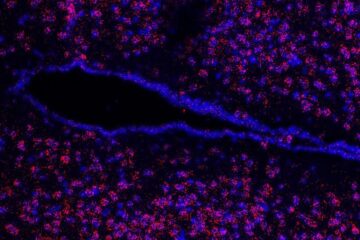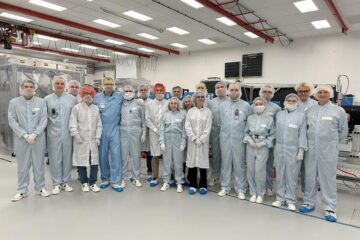"Chemistry meets Biology" – 2nd EMBO Young Investigator Programme Symposium

Chemical Approaches to the Study of Biology at the EMBL in Heidelberg, Germany
Chemical approaches have always played a crucial role in the study of biological processes. This has become increasingly obvious in recent years. The use of chemical expertise to study complex biological phenomena within cellular systems and the necessity to understand and control the chemical processes underlying these phenomena has led to the development of a research field that has become known as „chemical biology“.
Biologists should become increasingly aware of the possibilities offered by combining chemical and biological approaches. The aim of this meeting is to bring chemists and biologists together and showcase the application of chemical approaches, most of which are made possible by organic synthesis, to the study of biology. Participants will have the opportunity to learn about chemical approaches to cellular imaging, signal transduction, cell division, gene expression, and to structural biology and new possibilities to generate biologically important molecules. Additionally, in depth discussion with experts in protein labelling techniques, fluorophore development, combinatorial methods and high-throughput screening, chemical genetics and gene silencing/control of gene expression will be possible during round table discussion sessions. Discussion and poster sessionscreate the opportunity for interaction and exchange between chemists and biologists.
ContactEMBO Young Investigator Programme Manager
Postfach 1022.40
D-69012 Heidelberg
Germany
Tel: +49 6221 8891 112
Fax: +49 6221 8891 209
Email: wallon@embo.org
Kim Piggott
EMBO Young Investigator Programme Administration
Postfach 1022.40
D-69012 Heidelberg
Germany
Tel: +49 6221 8891 110
Fax: +49 6221 8891 209
Email: piggott@embo.org
Media Contact
Weitere Informationen:
http://www.embo.org/projects/yip/chemicalbiology/index.html http://www.embo.orgAlle Nachrichten aus der Kategorie: Veranstaltungsnachrichten
Neueste Beiträge

Wolken bedecken die Nachtseite des heißen Exoplaneten WASP-43b
Ein Forschungsteam, darunter Forschende des MPIA, hat mit Hilfe des Weltraumteleskops James Webb eine Temperaturkarte des heißen Gasriesen-Exoplaneten WASP-43b erstellt. Der nahe gelegene Mutterstern beleuchtet ständig eine Hälfte des Planeten…

Neuer Regulator des Essverhaltens identifiziert
Möglicher Ansatz zur Behandlung von Übergewicht… Die rapide ansteigende Zahl von Personen mit Übergewicht oder Adipositas stellt weltweit ein gravierendes medizinisches Problem dar. Neben dem sich verändernden Lebensstil der Menschen…

Maschinelles Lernen optimiert Experimente mit dem Hochleistungslaser
Ein Team von internationalen Wissenschaftlerinnen und Wissenschaftlern des Lawrence Livermore National Laboratory (LLNL), des Fraunhofer-Instituts für Lasertechnik ILT und der Extreme Light Infrastructure (ELI) hat gemeinsam ein Experiment zur Optimierung…





















